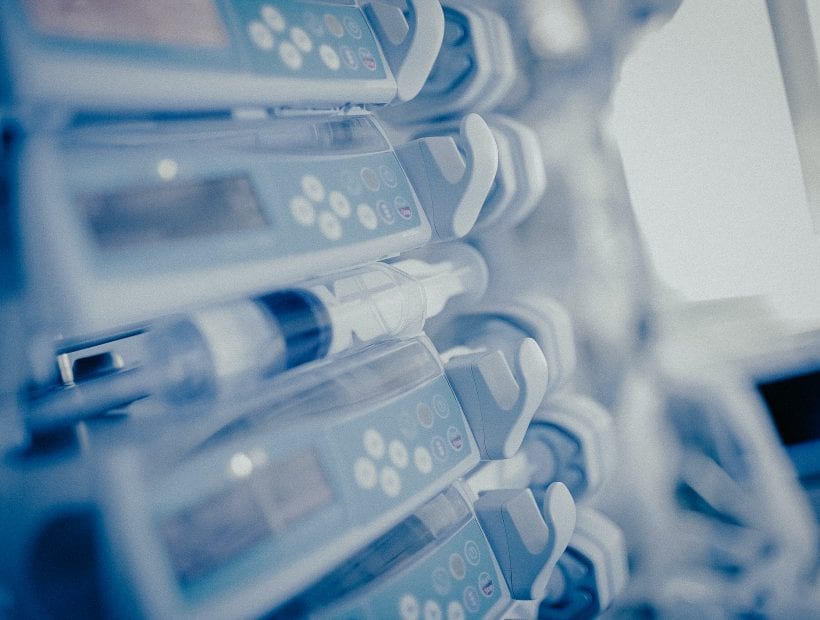Travel Nurse Orientation Guide

You took the plunge and decided to step out as a travel nurse. You’ve accepted a job, chosen a pay package, and selected which benefits you want. You’re almost officially a travel nurse. But there’s still a lot to do before your first day. You might be asking, do travel nurses have an orientation or training? What’s that like? Luckily, we’ve got you covered so you can walk into your new facility on the right foot.
TNAA Travel Nurse Orientation Guide
- Part 1: Preparing for Orientation
- Part 2: Orientation Expectations
- Part 3: Real Orientation Experiences
- Part 4: Orientation Advice From a Travel Nurse
- Part 5: Asking the Important Questions

Part 1: Preparing for Orientation
Before you can hit the unit, you’ll need to complete orientation. The more assignments you complete, the more you’ll realize that each unit will be a little different. There is no one-size-fits-all when it comes to travel nurse orientation. While it can be daunting to look at everything needed, TNAA support staff brings unparalleled market knowledge to ensure you’re able to start your assignment on time.
Real People. Real Relationships. Real Support.
At TNAA, we do things differently. We believe in making this nuanced industry, a little simpler. Our in-house credentialing team is the most experienced in the industry and works behind the scenes to make credentialing and licensing quick and easy, so you can get to work.
Immediately After Booking
As soon as you book your assignment, your QA specialist will get to work. They start with creating a checklist of everything the facility requires, from certifications to titers. Your specialist will then work with you to obtain each item, ensuring they’re all submitted promptly.
Credentialing Tip: We recommend marking emails from your specialist as priority.
Onboarding & Travel Nurse Requirements
While your specialist will send you a list and help you obtain your requirements, you can count on needing a drug screen, immunization records, and a recent physical exam. We understand the costs of tests, certifications, and records can add up. That’s why our team will arrange and pay for any physical examinations and immunizations you may need to start working. When you work with TNAA, we will pay for or reimburse you for the cost of:
- Nursing licenses
- Certifications
- Physicals and immunizations
- Titers
- Background checks and drug screens
- Fingerprinting

Documentation Tip: Digitize the documents you send to QA so you have them on hand, just in case. Google Drive is free, autosaves, and can be password protected.
First Day Instructions
As soon as your QA specialist receives instructions from the facility, you will receive First Day Instructions. Keep in mind; each facility does things differently, so while some send out detailed instructions covering all the bases, others might offer the bare minimum. Your FDI can include any of the following:
- Orientation itinerary
- Location & start time of your orientation
- Contact information for your facility and/or unit
- Scrub color and/or orientation attire
- Time recording details
- What to expect at your orientation
First Day Tip: If you didn’t receive much information, don’t panic. You will likely receive more details upon arrival.
Prerequisites & Orientation Modules
On occasion, a facility may require you to complete additional tasks before starting your assignment, like completing training or orientation modules. TNAA will pay for you to do approved tasks before starting your assignment. From paperwork to modules, you’ll want to complete these as soon as possible, so your onboarding and orientation run smoothly. While every task may not qualify, we encourage you to ask your QA specialist for more information or to see if a task qualifies.

For more information on the Your Way is Paid program, please contact a member of our Quality Assurance Team here.
Part 2: Orientation Expectations
Your next stop is with your designated clinical specialist, a registered nurse, just like you. Their job is to support TNAA nurses, ensuring their success, and they do a good job. In fact, TNAA leads in the industry in nurse success rates.
Clinical Support
For first-time travelers and travelers new to TNAA, your clinical specialist will contact you. Whether it’s helping you prep for a facility exam or reminding you of best practices, their goal is to ensure you know that you have clinical support and set you up for success. This nurse will be your go-to support system for anything that arises on the job, nurse-to-nurse. Before your orientation they may review the following:
- TNAA nurse standards: TNAA travel nurses are the best in the industry. We maintain valuable relationships with facilities because they know our nurses are top-notch. Expect a few quick dos and don’ts.
- Scheduling: This can be the most significant friction point for new travelers. Your clinical specialist may review schedule expectations with you.
- First-day testing: If your facility requires testing, your clinical specialist can provide you with resources and study material available. For example, if you’re working Tele or PACU, you may be required to take an EKG test.
- Orientation goals: Since every orientation is different, our team can help you determine need-to-know info so you can leave your first day feeling confident by helping you to identify specialty-specific goals and facility policies, from ensuring you can locate the crash cart to understanding the call-off procedure.

Still feeling anxious? Your team at TNAA has your back and a track record of success. In fact, you have 60% greater chance of success with TNAA.
Part 3: Real Orientation Experiences
While we’d like to break down specifics for you, we simply can’t. Each facility has different procedures, policies, and needs. Some facilities are in desperate need of help so they may expect you to hit the ground running after a day or two of orientation. Others may offer a full week of training. So in terms of length, attire, and whether or not you’ll have classmates, expect the unexpected.
You Can Almost Always Expect
- Facility Orientation
- Unit Orientation
Darlean, RN BSN
“Orientation for a travel assignment is much different than normal orientation for permanent staff because usually we only get ONE day to orient to the unit. Sometimes it’s not even a full day. If you are hired as a float RN and will be working on several different units, you may only have an orientation to each unit for 4 hours or less. Typically, day one orientation will more than likely be a day where you are in a different room with several different travelers. Your goal on this day is to learn the system you will be working with, the glucometer devices, and any other tools the hospital system uses.

On your first day that you work that unit, again, depending on the hospital system, you will likely have a preceptor to orient you to the unit for that day or half the day. That means you will be on your own for the next half of the shift. Sounds scary, right? It’s not scary. The only worrisome feeling is not knowing your way around the hospital/unit, or which numbers to call in regards to your treatment team, 99.9% of the time there will always be someone there to help you with your questions. You more than likely will also have other vetted travel nurses at your assignment’s location that will be thrilled to see another traveler and show them the ropes.”
Expect the Unexpected
“My shortest orientation was on my second assignment, where I had virtually no orientation at all. I showed up at the orientation site at 7 am, as specified in the email, and was told I did not need to be there. I was sent home immediately due to my previous assignment. Since I worked at a hospital in the same system, I didn’t need a facility orientation.

To make things even more exciting for a short orientation, I was hired as a float PCU RN. So I would have to float to any PCU at the hospital with needs, their cardiovascular short stay unit, and the Emergency Department for inpatient holdings, which I spent most of my assignment by the way. This means I had one day to orient to 3 different units. “
Your first on-site day will consist of a tour of the unit(s) and sometimes even work that same day. Your first shift is usually with a preceptor, then its, “Fly little bird! Spread your wings!”
Tiffany, RN CCRN
“Travel orientation differs from staff orientation in the fact that it is drastically cut down on time. In my experience as a traveler, we usually get 1-2 days of new employee orientation alongside the perm staff. Typically, your orientation is just hospital/ HR basics were you go over policies & procedures, computer access, EMRs, glucometer access, etc. Often there are online modules that must be completed before day 1.

Regardless of location, one can almost always expect a brief computer training segment, p&p, and generally a minimum of 4 hours of floor orientation. Skills testing has seemed to vary from one assignment to another.”
Expect the Unexpected
“My most in-depth orientation involved 2 full days of hospital orientation as well as 2 full shifts of orientation on the unit. Plus, there were many hours of online modules completed before starting the assignment that went over many policies/procedures/etc. I received compensation for my time for this online work — ask your recruiter to check to see if pre-employment work will be compensated.”
Part 4: Orientation Advice From a Travel Nurse
We asked our travelers for their advice on orienting to new facilities and new units. While things will absolutely vary unit-to-unit, these are constants you can take with you:
- Ask the important questions. I have a list that I ask during my interview before I even accept a position. I ask about ratios, dress code, scheduling, float policy, etc. During orientation, I always get confirmation on these topics as well as getting a list of significant phone numbers, door codes, a brief hospital tour if possible (or at least where the crucial places are like the cafeteria! Oh, and CT, MRI, lab).
- Organize, organize, organize. Complete all assigned paperwork/tests/homework and have a hard copy for you and the company. And bring a folder for your new paperwork and passwords. You can also save your passcodes on your phone in a secured app or notes. Do your research on the area, hospital, and even visit the site BEFORE your actual orientation; this will help you get a feel for the traffic and time to walk to your on-site location.
- Bring a smile! Have FUN! It’s just orientation. You already got the assignment. You are needed. Learn what you can and as much as you can. Meet others, open up, and enjoy your new scenery for the next 3 months.
Part 5: Asking the Important Questions
Where’s the Pyxis? And what time do I need to clock in by?
We will do everything we can to help prepare you for your first assignment, and every assignment after that. From pyxis locations to the set up of code carts, we love this advice from our travelers about what they feel responsible for knowing.
Darlean, RN BSN
There are a lot of things I insist on knowing before feeling confident before I hit the floor. And it’s my responsibility to ask:
- Points of contact: Ask for a cheat sheet or code card that has important numbers on them. This is important because you need to know how to contact the lab, phlebotomy, the admitting or attending MD or resident, and even areas like food services or environmental services. You may think these things will be easy to find, but when you’re in the moment when everyone is busy, you at least need to know how to find these resources so you can continue to provide the best level of care you can in an unfamiliar setting.
- Transportation routes: Insist on knowing the best routes of transportation for your patient to certain areas. Not every hospital will have a transporter available for your patient — well, they will, and it’s YOU. It will be you. So a map of the hospital wouldn’t hurt.
- Medication storage: If your unit has more than one med room, ask if your patient’s medications are in a specific pyxis based on patient area. Not all pyxis are the same.
- Unit culture: Ask about the culture of the unit and who is there to help. This will be useful because you will need help at times. And knowing the culture of the unit will keep you from unintentionally offending others or how that unit operates.
Zane, RN BSN
Most questions will arise as you meet them in the unit. DON’T BE SHY. Many people are quiet when starting at a new place, which is normal, but being open and receptive to new people helps a lot.
- Clocking in & out: The number one question I always ask when orienting to the unit is where do I clock in? I also need to know what time I need to clock in and out by. This is not only to ensure that I’m getting paid for my time, but some hospitals get irate if travelers are taking too long to clock in or out.
- Workflow: I ask general questions about the charting: what are the unit requirements for ICU charting? I like to look at all the equipment and setups of the unit to understand how the flow works. I’ve started to ask about how the code cart is set up. When a traveler isn’t used to the way something as critical as a code cart is set up, it usually can be the difference between life and death. A traveler who isn’t asking questions can be hazardous to their own career.
- Build connections: More often than not, you’ll find you aren’t the only traveler starting at that time. I almost always try to get contact info for every traveler in our orientation, either via Facebook, or cell number. This helps people not to feel alone when working in a new place.

The other big thing is to be open-minded to the experience. When you have only worked in one facility your entire RN career, it’s hard to get out of the bubble of the way things have been taught to you.







